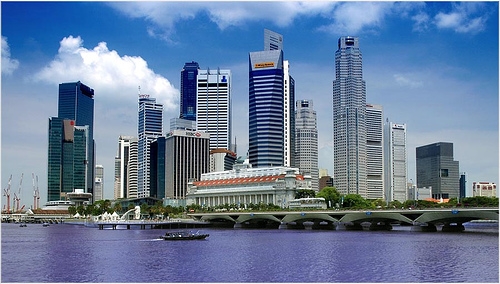
Asia property price boom unraveled in 2011
Fears of China property crash rekindled as prices at Singapore, Sydney and Shanghai, previously the fastest growers, fall.
While capital flight from emerging economies to safe havens has been integral to the performance of the
world’s luxury housing markets, the story that grabbed the media’s attention in 2011 was the potential for a Chinese property crash. Price falls in Singapore, Sydney and Shanghai – tellingly among the fastest growers in last year’s PIRI survey – confirm the unravelling of speculative price booms in Asia Pacific, says joint Knight Frank and Citi's 'The Wealth report 2012.
Here's more from the report:
This concern is hardly surprising. China’s housing market arguably forms the single most important
sector in the entire global economy. In 2011, China's construction sector accounted for 13% of its GDP, 20% of global steel production, and was the dominant consumer of the world’s iron, copper and cement. The performance of China’s housing market matters.
While mainstream prices have been falling across the “tier-one” Chinese cities, the prime markets have fared slightly better, although growth is slowing. Prices in Beijing’s luxury sector, for example, rose by a healthy 8% in 2011, but this was largely due to a strong performance in the first half of the year.
We shouldn’t be overly surprised that prices are falling in some of Asia’s prime markets; the falls follow
huge booms over the past two years.
“Shanghai prime prices might have fallen 3.4% in 2011, but they are still 37.5% higher than they were in early 2009,” says Thomas Lam Ho Man, Knight Frank’s Head of Research for Greater China.
In addition, the Chinese government has made a concerted effort to halt runaway price growth. This objective confirms two key issues that will become more and more important for future performance in the
prime residential market.
The first is the political reaction to a widening imbalance in the distribution of wealth in China. As
well as the potentially destabilising economic effects of rapid price growth, the Chinese government has become increasingly worried about rising popular discontent as housing affordability becomes an issue even for the country’s middle classes. The second issue is China’s increasingly confident use of policy levers to attempt to set prices in an ostensibly free market. Much has been made recently of the rise of state capitalism. In China’s housing market an unusual mix of private and state control is creating something of a “planned market” for housing. It is a policy that has been exported in varying degrees to Singapore and Hong Kong.
Unsurprisingly, the attempt to control prices in China has seen investors switch their focus to commercial property markets and also to the prime residential market in Hong Kong. Mainland Chinese
buyers now make up 25% of prime market purchases in Hong Kong, where prime apartment prices rose by a further 4.6% in 2011, compounding the 60% growth seen since the beginning of 2009.
In India, meanwhile, the government has not had to resort to specific cooling measures to check the growth of the country’s burgeoning prime residential markets; weaker economic conditions and high inflation, with a concomitant decision by the Bank of India to raise interest rates 13 separate times in 2011, contributed to prices in Mumbai falling by more than 18% last year. India’s prime market is unusually vulnerable to internal economic events because the country’s strict limits on foreign buyers removes the potential safety net provided by inward capital flows from overseas buyers.
Elsewhere in the Asia-Pacific region, prime Australian prices have also slipped as affordability becomes an increasing constraint.
But weaker price performance is not the whole story of Asia's prime residential market. Knight Frank
Indonesia’s Fakky Hidayat points out that Jakarta’s strong performance in 2011, up by over 14%, resulted
from the steady growth of Indonesia’s domestic economy. However, a lack of clarity over new anti-money
laundering regulations being introduced in March this year could cause uncertainty in 2012, he adds.
___
























 Advertise
Advertise






